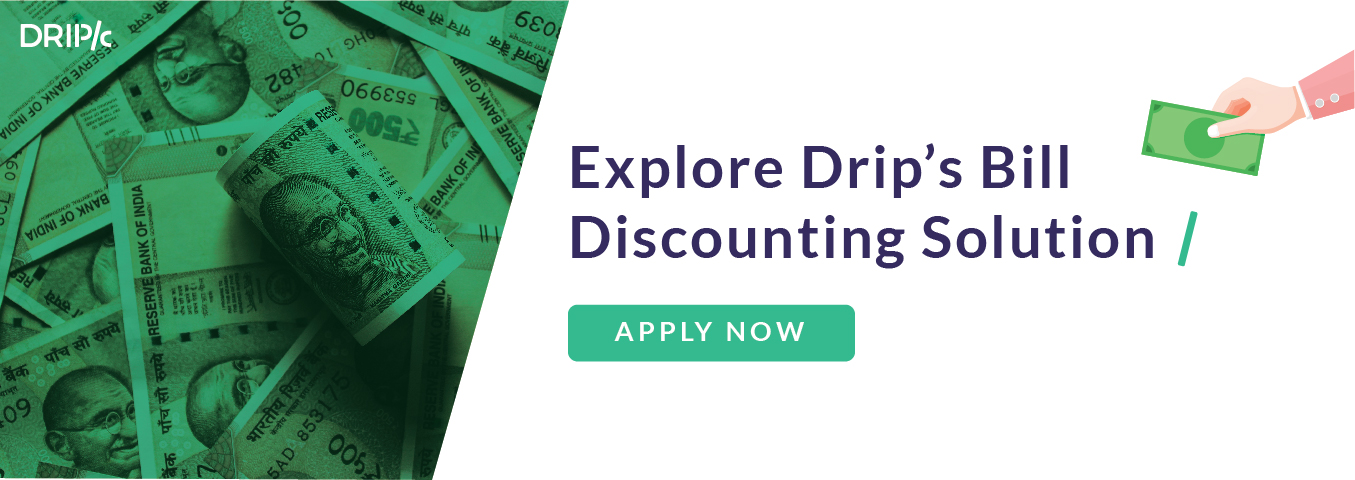1. What is FEMA ACT?
The full form of FEMA stands for ‘ Foreign Exchange Management Act ’, an official body that consolidates and amends laws regulating foreign exchange in India. The primary objective of FEMA act was “facilitating external trade and payments and promoting the orderly development and maintenance of foreign exchange market in India”. FEMA was enacted by the Parliament of India in the winter session of 1999 to replace the Foreign Exchange Regulation Act (FERA) of 1973.
The RBI proposed FEMA in 1999 to administrate foreign trade and exchange transactions. According to the official order, FEMA would “consolidate and amend the law relating to foreign exchange (forex) with the objective of facilitating external trade and payments and for promoting the orderly development and maintenance of foreign exchange market in India”.
The Foreign Exchange Management Act officially came into force on 1st June 2000. Thus the forex market in India is regulated by RBI and its arrival paved the way for the introduction of the Prevention of Money Laundering Act (PMLA) of 2002.
2. Objectives of FEMA Act
Following are the most important objectives of FEMA:-
- Facilitating external trade and payments
- Promoting the orderly development and maintenance of foreign exchange market in India
- Defining formalities and procedures for all forex transactions in India
3. Guidelines and Regulations for outward remittances under FEMA
Most significantly, FEMA regarded all forex-related offences as civil offences, whereas FERA regarded them as criminal offences. Additionally, there were other important facts such as:
It did not apply to Indian citizens who resided outside India. The eligilibity was checked by calculating the number of days a person resided in India during the previous financial year (182 days or more to be a resident). It was noted that even an office, a branch, or an agency could be a ‘person’ for the purpose of checking residency. So these were the standard norms for a person to be recognized as an authorized entity under FEMA.
FEMA authorized the central government to impose restrictions on and supervise three things – payments made to any person outside India or receipts from them, forex, and foreign security deals.
It specified the areas around acquisition/holding of forex that required specific permission of the Reserve Bank of India (RBI) or the government.
As per the law, foreign exchange transactions have been divided into two categories - capital account and current account. A capital account transaction altered the assets and liabilities outside India or inside India but of a person resident outside India. Thus, any transaction that changed overseas assets and liabilities for an Indian resident in a foreign country, or vice versa, was classified as a capital account transaction. Any other transaction fell into the current account category.
4. Capital Account Transactions under FEMA
FEMA also gave the RBI the authority to regulate capital account transactions. As per the Foreign Exchange Management (Permissible Capital Account Transactions) Regulations of 2000, “no person shall undertake or sell or draw foreign exchange to or from an authorised person for any capital account transaction”. The Regulations prohibited any person resident outside India from investing in Indian firms or organisations in the business of chit funds such as a Nidhi company, agricultural or plantation activities, real estate (excluding development of townships, construction of residential/commercial premises, roads or bridges), or construction of farm houses, and/or in trading in Transferable Development Rights (TDRs).
It did allow for transactions carried out by Indian residents that included investments in foreign securities, foreign currency loans raised in and out of India, transfer of immovable property outside India, the issue of guarantees in favour of anybody living outside India, and the export/import and holding of currency/currency notes.
5. Current Account Transaction under FEMA
Under The Foreign Exchange Management Act, the central government issued the Foreign Exchange Management (Current Account Transaction) Rules of 2000 which restricted forex deals made by authorised persons under their current account. Under the FEMA rules and regulations, current account transactions that were prohibited, not prohibited, and permitted, required the prior approval of the central government and/or RBI.
Prohibited transactions included the remittance of lottery winnings, income from racing/riding, purchase of lottery tickets, banned/proscribed magazines, football pools, sweepstakes, commission on exports made towards equity investment in JVs/wholly owned subsidiaries of Indian companies abroad, amongst others. Additionally, Nepal and Bhutan allowed the use of Indian currency for local transactions, and the citizens of these countries were considered at par with Indian citizens from a legal standpoint. Because of these provisions allowing for a common currency market in India, Nepal and Bhutan, use of forex for transactions in – or with the residents of – Nepal and Bhutan was also prohibited.
Moreover, FEMA recognized the growing international presence of Indians as well as the rising contribution of Non Resident Indians (NRIs) to the Indian economy. So under the LSR limit scheme of FEMA, one can send money to India -- upto a limit of US $250,000 in one financial year. Also it is applicable for a variety of purposes that include international travel to any country (except Nepal and Bhutan), gifts, donations, travel for overseas employment, emigration and maintenance of close relatives living abroad.
6. Features and Provisions under FEMA
The RBI was the overall controlling authority as far as foreign exchange management was concerned. It worked with and empowered the central bank to specify the different classes of capital account transactions along with the exchange rate admissible for each such transaction.
Authorised persons could facilitate forex trading; however, the Act empowered the RBI to put several restrictions on their capital account. Authorized persons were expected to provide details and information regarding forex transactions to the RBI on a regular basis.
FEMA law allowed Indian residents to carry out transactions in forex, foreign security, or to own immovable property abroad. This was permitted if the currency, security, or property was owned or acquired when he/she was living outside India, or if it was inherited by him/her from someone living outside India.
FEMA compliance covered forex transactions and remittances which included individuals or entrepreneurs moving money in or out of India, or exchanging foreign currency in India for travel purposes.
There were many subsequent regulations and functions issued under the Act addressing specific issues such as authentication of documents, current account transactions, adjudication proceedings and appeal, compounding proceedings, permissible capital account transactions and borrowing or lending in forex, amongst others.
As per the rules defined under FEMA, there are few limits determined such as -- if a person enacts a breach against quota, the penalty will be thrice the sum. Events where the amount is not quantifiable, the penalty imposed remains up to Rs. 2 lakh. In occurrences where the violation continues on a daily basis, the amount stands at Rs. 5000 daily (excluding the first day of violation). Also, if there is any kind of property which is involved during the course the asset will be confiscated and considered as a fee under contravention of law.
Indeed, FEMA was drafted to create a more liberal foreign exchange market in India. The Act encouraged deregulation of foreign exchange and smooth international trade. FEMA also has a distinct administrative difference from FERA, which sought to impose sweeping regulations on every aspect of India forex transactions. On the other hand, FEMA aimed to manage only certain forex transactions that might have an impact on national security and the wider national economy, and opened up individual forex transactions to the free market.
With Drip Capital’s expert guidance and consulting, entities can better comply with FEMA. This includes specific guidance on FEMA-applicable areas and export businesses within India as well as all branches, offices, and agencies located outside India that are owned or controlled by a resident of India.
7. Difference between FERA and FEMA
When FERA was introduced in 1973, the Indian economy was suffering from an all-time low of foreign exchange (forex) reserves. To rebuild these reserves, the government took a stance that all forex earned by Indian residents -- living within India or abroad -- belonged to the Government of India and had to be surrendered to the Reserve Bank of India (RBI). FERA, thus, severely regulated all forex transactions that had a direct or indirect impact on India’s forex reserves, which included the import and/or export of currency.
However, the objective of FERA did not quite have the effect that was envisioned and the Indian economy continued to decline. To compound matters, the strict regulatory environment created under the ‘License Raj’ dampened the Indian economy further. To mitigate the downturn, then-Finance Minister Manmohan Singh unleashed economic liberalization in 1991 and as a result, the government had to make a series of concessions to FERA’s stipulations under the new rules. These concessions made FERA largely irrelevant under the new economic regime. Eventually, the government decided to move from “currency regulation” to “currency management”, and set up FEMA. And so FERA in India was replaced by FEMA.
Also Read:
- Forex Hedge | Currency Hedging Strategy for Exporters
- Letter of Credit and its Process
- Export Incentives in India | Types, Benefits & How it works
- Export Payment Terms | Listing Safest mode of Payments in International trade
- Export Promotion Council of India | Functions & Registration procedures
- Export Inspection Council (EIC) of India | Importance of the Certification in export
- Export Pricing Strategy for your export business
- What is ICEGATE and what services does it offer?
- eBRC - Everything An Exporter Needs To Know
- How to apply for IEC Code Online?




